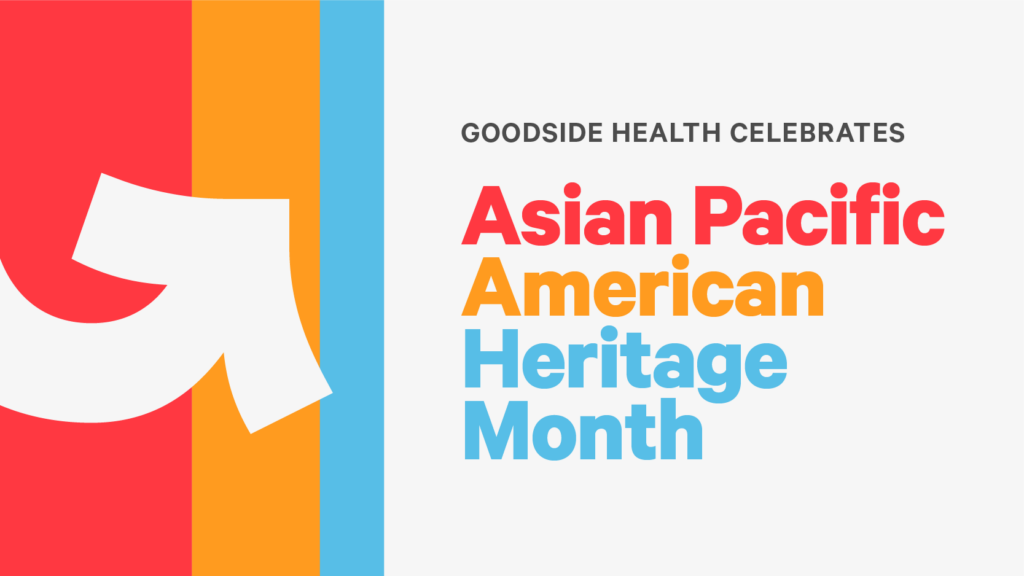As we recognize the many ways in which this diverse, expansive population group has enriched our society, Goodside Health is shining a light on some of the unique challenges these communities face in achieving health equity in the U.S.
Of the more than 1.1. million students eligible to participate in Goodside Health’s SchoolMed program, nearly 2% identify as Asian American or Pacific Islander.
According to the Kaiser Family Foundation, Asian, Native Hawaiian, and Pacific Islanders (ANHOPI) represent the fastest-growing racial/ethnic group in the U.S., with roughly half of ANHOPI children receiving health benefits from Medicaid or CHIP.1
With more than 48 countries comprising Asia and the Pacific Islands, these communities encounter unique barriers when trying to access care. For example, a “limited number of bilingual community health workers” has impacted access to vaccinations and other public health efforts.2
Another report shows that – even as their domestic population increased nearly two-fold from 2000 to 2020 – Asian Americans and Pacific Islanders are less likely to report having access to a personal doctor.3
The COVID-19 pandemic worsened some of those barriers to care, especially around mental health.
Nearly 4,000 incidents of hate and racist behavior were directed at Asian and Pacific Islander4, which already experienced increasing rates of major depressive episodes among youth aged 12-to-17.5
Goodside Health is committed to serving patients by providing appropriate, quality care that considers the cultural and ethnic backgrounds, lived experiences, and values of every individual. We understand that:
-
Culturally Competent care starts by acknowledging that every racial and ethnic group as well as every person is inherently unique.
-
The way that someone receives, processes, and reacts in a healthcare setting is both rooted in their culture and their own lived experience.
-
‘What is important to you?’ and ‘How can we be helpful?’ are always appropriate questions for the patient and family.
-
Patients and partners trust Goodside Care to care for their families because of our expertise as well as our capacity to adjust recommendations to best meet the patient’s and family’s life circumstances.
Goodside Health is proud to serve a growing number of increasingly diverse communities through our school-based and virtual care services as well as across our Urgent Care for Kids clinics.
Stay tuned to our Good News page as we celebrate important cultural and diversity observances throughout 2023.
About Goodside Health
Goodside Health is advancing the delivery of pediatric care by partnering with communities to provide access to telehealth, mental health, and well-care services at school, at home, and in the clinic. Relentless advocates for expanding access to care and promoting health equity, Goodside Health leverages a Whole-Child Approach to care and lives our mission of closing gaps in children’s healthcare through innovation and execution. To learn more about Goodside Health, please visit goodsidehealth.com.
SOURCES:
- Health Care Disparities Among Asian, Native Hawaiian, and Other Pacific Islander (NHOPI) People. 2022. Kaiser Family Foundation.
- Kaholokula, AuYoung, Chau , Sambamoorthi, Carson, Thao, Nguyen, Alo, Riklon, Lepule, and Ma. Unified in Our Diversity to Address Health Disparities Among Asian Americans, Native Hawaiians, and Pacific Islanders. 2022. Health Equity.
- Health Disparities Among Asian Americans and Pacific Islanders. 2023. Pfizer Inc.
- Zara Abrams. The mental health impact of anti-Asian racism. 2021. American Psychological Association Vo. 52 No. 5.
- Behavioral Health Barometer, United States, Volume 6. Indicators as measured through the 2019 National Survey on Drug Use and Health and the National Survey of Substance Abuse Treatment Services. 2020. The Substance Abuse and Mental Health Services Administration.
